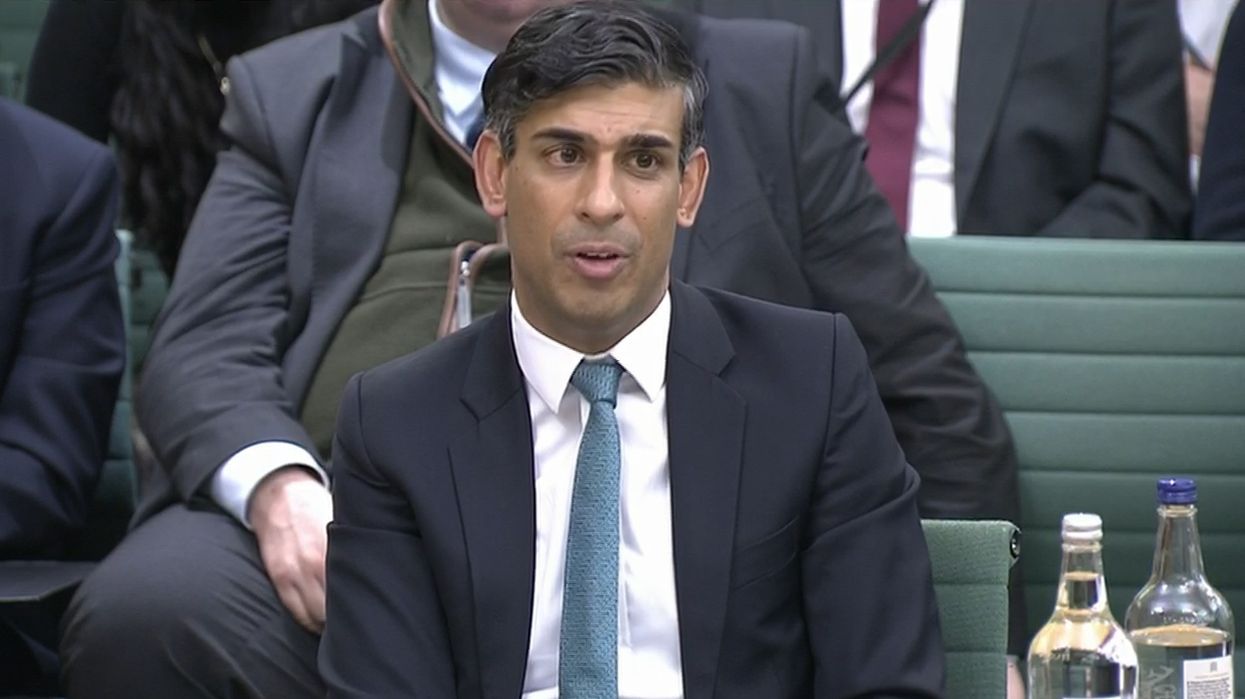Rishi Sunak faces rebellion over ‘boiler tax’ as Prime Minister plans to railroad heat pump rollout

Rishi Sunak faces a rebellion from Tory backbenchers
|PA

Prime Minister Rishi Sunak faces a showdown with MPs in the House of Commons next year
Don't Miss
Most Read
Latest
Rishi Sunak faces a Tory rebellion over his proposals to create a net zero “boiler tax” in order to drive forward the heat pump rollout.
Conservative Party backbenchers are mobilising to oppose the plans when they are put before the Commons for a vote in the new year.
Prime Minister Rishi Sunak is pushing to fine boiler makers who don’t meet heat pump installation targets from April.
Manufacturers have responded to the plans by raising prices by as much as £120, to offset the cost.

'The new 'boiler tax' is 'another blow to hardworking families', the Net Zero Scrutiny Group chairman said
|GETTY
The Net Zero Scrutiny Group, which consists of 50 Conservative Party backbenchers, is preparing to vote against the plans, according to The Telegraph.
Craig Mackinlay, the influential group’s chairman, said: “The Government’s planned new boiler tax is another blow to hardworking families.
“If heat pumps are as good as ministers are claiming then why do they feel the need to mandate them?
“I urge the Prime Minister to remember his speech from back in September and deliver on his promise to protect families from the cost of net zero. He must scrap this tax.”
Ministers will need to pass a Statutory Instrument through the House of Commons to get the legal powers to enforce heat pump quotas.
Sir Jacob Rees-Mogg, former energy secretary and GB News presenter, told the publication: “Once again the green mania will increase inflation and lower living standards.
“It is wrong to tax boilers. If heat pumps are expensive and inefficient people should not be coerced into buying them.”
Mr Sunak’s plans would mean boiler manufacturers would have to ensure that four per cent of their sales are made up of heat pumps from April 2024.
Under the measures, known as the Clean Heat Market Mechanism (CHMM), the requirement would rise to six per cent in 2025-26.
There would be a fine of £3,000 for each unit the manufacturers miss their quota by.
Currently, the installation rate for heat pumps is around 60,000 a year, while its more than 1.5 million for boilers.
The Government wants 600,000 heat pumps a year to be installed by 2028.
LATEST DEVELOPMENTS:
Manufacturer Worcester Bosch, which has announced plans to increase its prices by £120, warned companies would have no choice but to "pass these fines onto the market in the form of a Clean Heat Market Mechanism levy".
A spokesperson said: "Worcester Bosch will not benefit in any way and interestingly, neither will market growth for heat pumps as the revenue raised from the fines will go to the Treasury and not be used to grow demand for heat pumps.
"This does, however, support the Government’s overall goal of closing the price gap between a gas boiler and heat pump installation."
Leading manufacturer Baxi also plans a £120 price hike. Their spokesperson said: "This levy is not a price increase, but a direct impact of the CHMM on our business, which we will use as payment to the Government for the penalty they award us for not meeting its four per cent target.”
Vaillant also intends to hike prices, by an extra £95 on the price of its boilers.
A spokesperson said: "There are multiple factors announced by the Government that will impact Vaillant. The current process does not allow manufacturers the full visibility of how many heat pumps sold are MCS registered.
"Given the changing market dynamics and push for heat pump installations generated by CHMM, we in the current circumstances are left with no option but to act."
A Department for Energy Security and Net Zero spokesman said: “We have not required any increase to the price of gas boilers.
“Targets are realistic and fully achievable, providing industry with flexible options to support our ambition to make heat pumps easy and affordable to install.
“This is alongside making it easier to get a heat pump by increasing the Boiler Upgrade Scheme by 50 per cent to £7,500 – tripling applications in the week after it was rolled out.”










